5 Cheeses You Can Still Eat If You're Lactose Intolerant, Says Dietitian
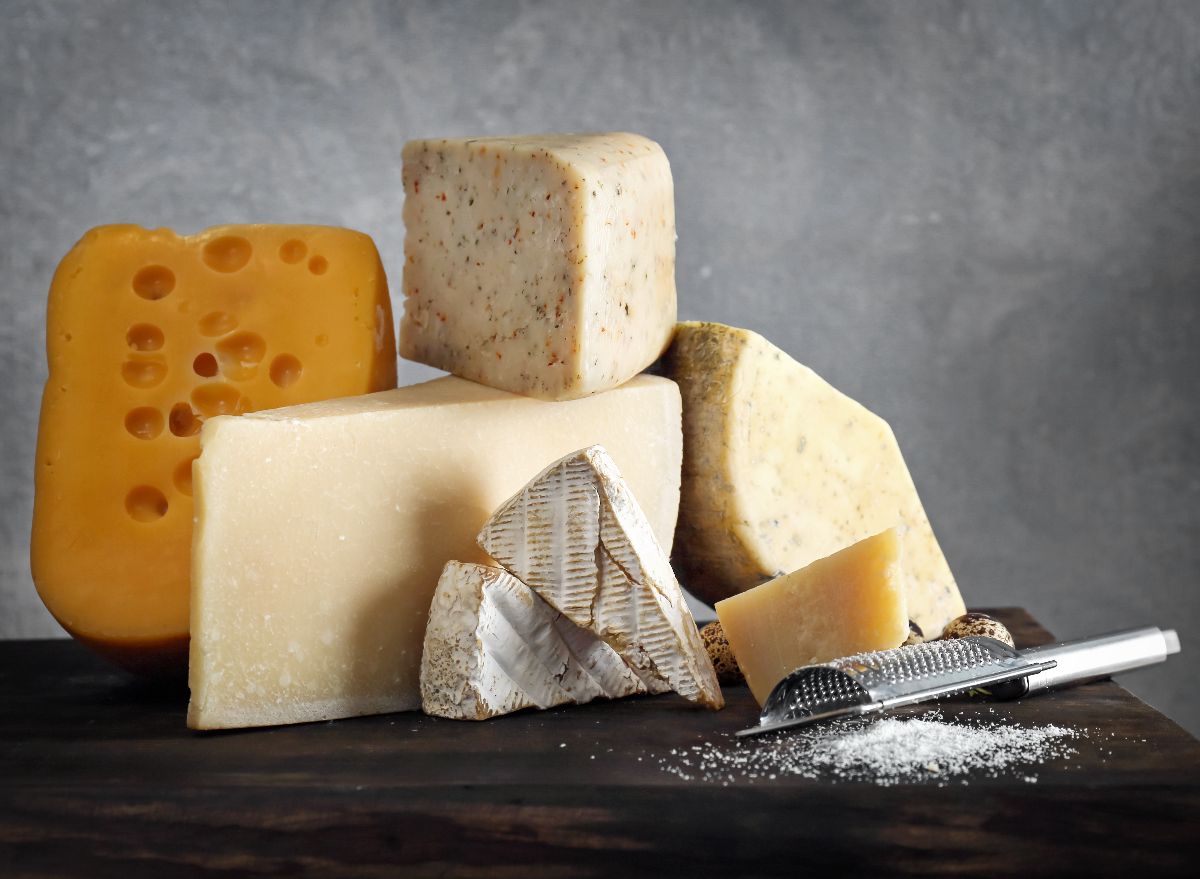
Cheese is a food enjoyed worldwide in endless ways: on top of a pizza, as an accompaniment to crackers, sprinkled over salad, or in a soup name, only a few of its common uses. While cheese is versatile in use and available in hundreds of types, this dairy-based food doesn't always agree with everyone, especially those with lactose intolerance. The good news is there are some types of cheeses that are usually tolerated by those with lactose sensitivities, so you can still enjoy cheese even if you're lactose intolerant. However, the trick is knowing the best ones to eat.
Lactose is the natural sugar found in milk and other dairy products. Yogurt and ice cream are a couple of foods containing lactose that may not be tolerated by those who are considered lactose intolerant. For individuals with this condition, their bodies aren't able to break down the lactose sugar in dairy foods, resulting in digestive discomforts like gas, bloating, and diarrhea. One way to combat these symptoms while still enjoying dairy foods is to take enzyme supplements that aid your body in digesting lactose. While this works for many with lactose intolerance, some may need to drastically reduce the lactose in their diet in order to avoid digestive discomfort.
As a rule of thumb, the fresher the cheese, the higher the lactose content is likely to be. This includes ricotta, feta, and cottage cheese. On the other hand, hard cheeses that have been aged usually have lower lactose content and can be easier to digest. There are several kinds of cheese that have relatively low lactose content and are, therefore, able to be properly digested by those with lactose intolerance. Here are five low-lactose cheeses you can enjoy in spite of your lactose intolerance.
Parmesan
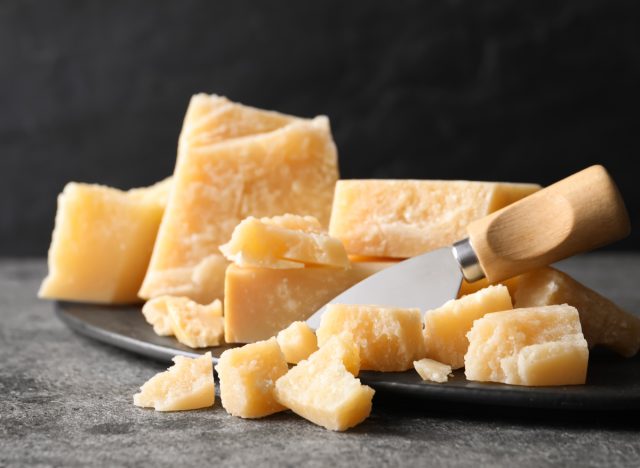
A popular hard cheese, Parmesan has low lactose content and can usually be tolerated by those with lactose intolerance. For reference, whole milk has around 5% lactose content, making it especially hard to digest for those with sensitivity. Parmesan contains around 1–3% lactose, making it a well-tolerated cheese. Enjoyed warm or cold, shredded, grated, or cubed, parmesan is one cheese option for those with lactose intolerance.
Cheddar
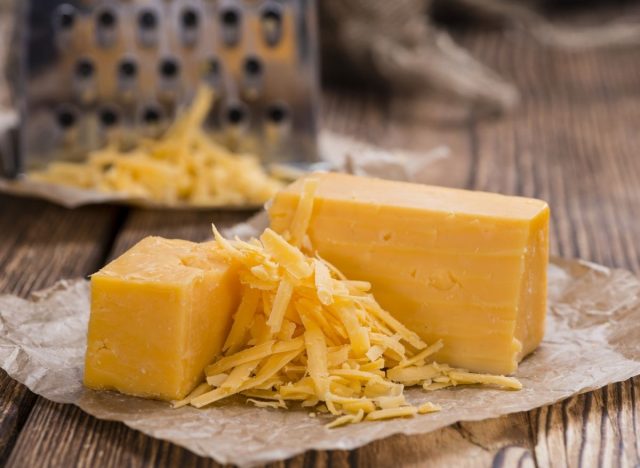
Perhaps the most popular cheese on this list, cheddar is another with low-lactose content. This is true for the various varieties of cheddar cheese including mild, sharp, and extra sharp. A cheese that can be melted on a burger, enjoyed on a cold deli sandwich, or packed as an easy protein source to enjoy with crackers on the go, cheddar cheese maintains the versatility that is a notable perk of cheese.
Provolone
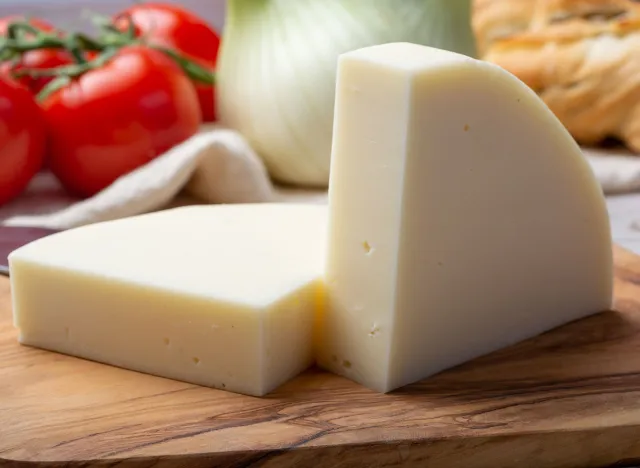
Another cheese with a mild to sharp flavor, depending on aging style, provolone generally contains under 2% lactose content. While this cheese may not make your next charcuterie board, it melts beautifully, making it a great option for grilled cheese sandwiches, baked pasta dishes, and pizza. You can also keep it cold and grate over a salad or pasta dish.
Swiss
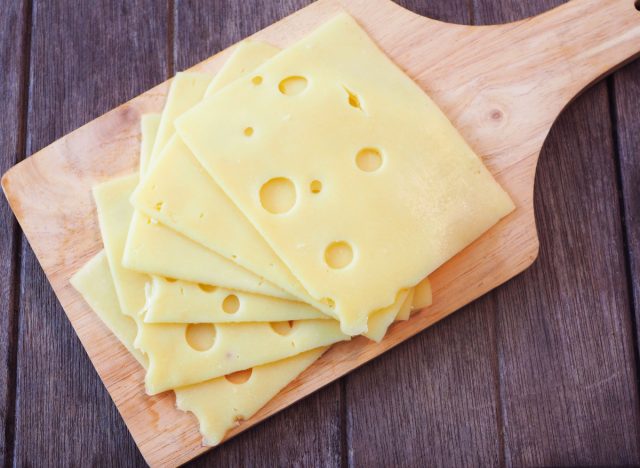
Known for its holey appearance, Swiss cheese rounds out this list of low-lactose cheeses. Swiss cheese is a generic name for a wide variety of cheese, most of which fall into a lactose content under 3.5%. Because certain varieties of this cheese can reach higher lactose contents than others on this list, it is best to keep your servings lower to avoid any digestive symptoms. While some forms may not lead to any symptoms, others may cause discomfort. Enjoy small servings on a deli sandwich or sprinkled in your omelet.
Brie
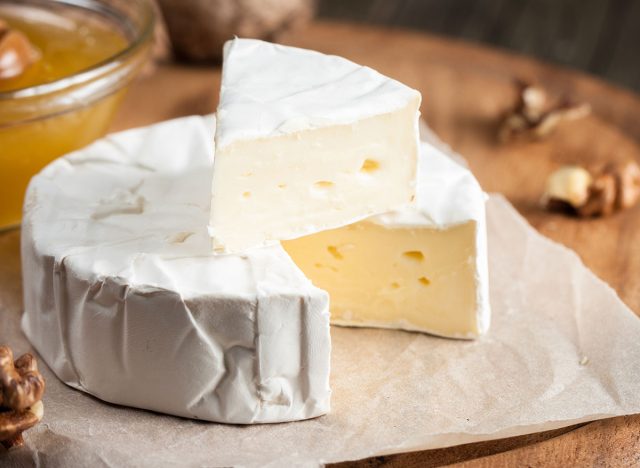
Often enjoyed warm and sometimes with a jam coating or pastry puff shell, brie is a soft cheese that is low in lactose content. Brie cheese has cream added to it which creates its creamy, rich flavor. This also adds some lactose content; however, brie generally contains under 2% lactose. The cream also adds some fat content, making brie slightly higher in fat than other low-lactose, soft cheeses, like camembert.









